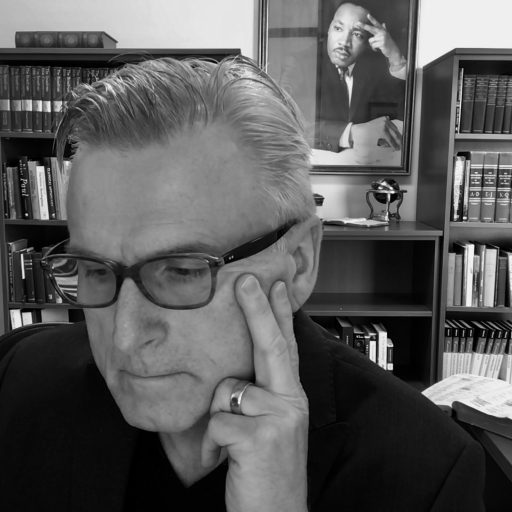There’s a thought experiment that haunts me: What would happen if we took the Bible seriously? Not just as a collection of inspiring stories or moral guidelines, but as the actual Word of God that should fundamentally reshape how we live, love, and engage with the world around us.
The primary foundation of any authentic faith movement should be “Believing the Bible as the Word of God.” But here’s the radical part—what if we actually lived like we believed it?
Love Without Borders
When Jesus said “love your enemies,” He wasn’t speaking metaphorically or offering a gentle suggestion for our consideration. He was laying down a revolutionary principle that should make the church the most confounding institution on earth. Imagine if we actually loved everybody—even our enemies—to such an extent that our enemies would look at the church and say, “Wow, those crazy people love me!”
This isn’t the sanitized, comfortable love we often practice within our church walls. This is the kind of love that crosses political lines, racial boundaries, and ideological divides. It’s the love that makes people scratch their heads and wonder what on earth has gotten into us.
A Consistent Respect for Life
If we truly held a radical respect for life, our witness would become beautifully consistent. We’d fight as vehemently against the death penalty as we do against abortion. We’d recognize that being pro-life means protecting life at every stage, in every circumstance, without the convenient exceptions that align with our political preferences.
This consistent ethic of life would make us uncomfortable allies to many and perfect allies to none—which is exactly where the church should be when it’s truly following Christ rather than partisan politics.
Listening Like Jesus
Too often, we have become known more for winning debates than for loving people. But what if we listened to people the way Jesus listened to them? Instead of feeling compelled to win arguments and exclude those with opposing viewpoints, what if we created spaces where people felt heard, valued, and welcomed?
Jesus had this remarkable ability to make people feel seen and understood, even when He disagreed with their choices. He listened first, loved always, and let transformation happen naturally through relationship rather than through rhetorical conquest.
Seeing Christ in the Poor

The Bible is crystal clear about how we should treat poor people—as human representations of Christ Himself. Yet somehow we’ve managed to create elaborate theological justifications for why this doesn’t apply to our economic policies or personal generosity.
What if we actually believed that when we encounter someone in need, we’re encountering Jesus? How would that change our budget priorities, our voting patterns, our daily interactions with those society has pushed to the margins?
Going Instead of Staying
We’ve become remarkably comfortable with staying put, building bigger buildings, and creating more programs for ourselves. But Jesus called His followers to “go.” We should be more compelled to move toward the world’s pain than to retreat into our sanctuaries.
This doesn’t mean everyone needs to become a missionary, but it does mean the church should be fundamentally oriented outward rather than inward. We should be known more for what we’re bringing to the world than for what we’re protecting ourselves from.
Cleansing the Temple
Jesus didn’t just teach about spiritual purity—He grabbed a whip and drove the money changers out of the temple. Maybe it’s time for some serious temple self-cleansing programs to purge the church of widespread commercialism and politics.
What would it look like if our denominational leaders were seen more often with mops and wrenches than with microphones and marketing materials? What if they were known for their service rather than their strategies, their humility rather than their platforms?
New Heroes
Our heroes should once again be found in mud huts and rice fields half a world away instead of in corner offices and television studios. The people we celebrate should be those who are sacrificially loving the world rather than those who are successfully managing religious enterprises.
This isn’t to diminish the importance of leadership and organization, but rather to remember what we’re organizing toward and who we’re leading people to become.
A Little Holy Rebellion
And here’s where things get fun: for every preacher who tries to turn the church into a political organization, they should be fair game for wedgies. (Okay, maybe that’s taking it too far, but you get the point.)
The church loses its prophetic voice when it becomes an extension of any political party. We’re called to be a peculiar people, not a predictable voting bloc.
The Challenge
This vision might sound impossible, naive, or even dangerous to some. Good. The gospel has always been a little dangerous to the status quo. It’s always challenged comfortable arrangements and safe assumptions.
The question isn’t whether this kind of radical faith is practical or politically expedient. The question is whether it’s biblical. And if it is—if this is what it actually means to believe the Bible as the Word of God—then maybe it’s time to stop making excuses and start making changes.
What would your church look like if it actually believed? What would your life look like? What would the world think of a church that loved this radically, served this consistently, and believed this authentically?
Maybe it’s time to find out.



Awesome thoughts, Matt. You like to step on toes, don’t you?
Not often, but it’s the luxury of obscurity😀